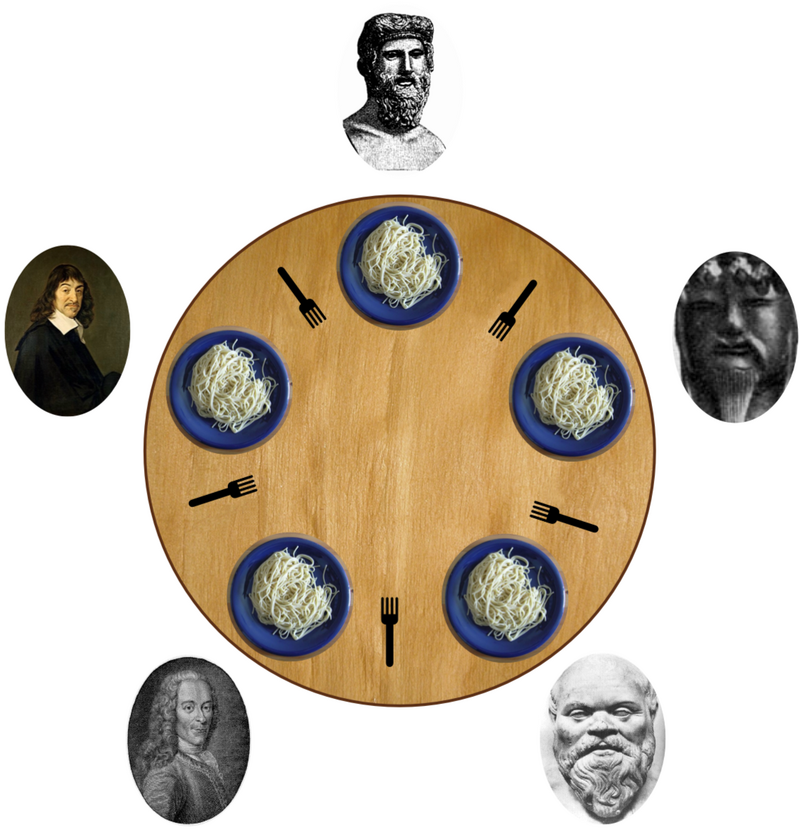Philosophers is a school project for discovering the world of process multi-threading, and that's through developing a program that solves a classical problem of synchronization called Dining Philosophers Problem. In our program the philosophers go through couple of states eating, sleeping and thinking, and with the help of mutex philosophers secure their forks while eating and drop them down when they finish.
📝 Note: The project is fully written in C programming Language.
- Learned to create multiple threads in a single process.
- Learned to manage resouces shared between threads without causing a Deadlock.
- Learned to create a program that automates the whole procces mentioned above.
Simply run make command to compile the necessary files.
makeThen run executable philo with the necessary arguments.
./philo number_of_philosophers time_to_die time_to_eat time_to_sleep [number_of_times_each_philosopher_must_eat]- number_of_philosophers: The number of philosophers and also the number of forks.
- time_to_die (in milliseconds): If a philosopher didn’t start eating time_to_die milliseconds since the beginning of their last meal or the beginning of the simulation, they die.
- time_to_eat (in milliseconds): The time it takes for a philosopher to eat. During that time, they will need to hold two forks.
- time_to_sleep (in milliseconds): The time a philosopher will spend sleeping.
- number_of_times_each_philosopher_must_eat (optional argument): If all philosophers have eaten at least number_of_times_each_philosopher_must_eat times, the simulation stops. If not specified, the simulation stops when a philosopher dies.
- One or more philosophers sit at a round table.
There is a large bowl of spaghetti in the middle of the table.- The philosophers alternatively eat, think, or sleep.
While they are eating, they are not thinking nor sleeping;
while thinking, they are not eating nor sleeping;
and, of course, while sleeping, they are not eating nor thinking.- There are also forks on the table. There are as many forks as philosophers.
- Because serving and eating spaghetti with only one fork is very inconvenient, a philosopher takes their right and their left forks to eat, one in each hand.
- When a philosopher has finished eating, they put their forks back on the table and start sleeping. Once awake, they start thinking again. The simulation stops when a philosopher dies of starvation.
- Every philosopher needs to eat and should never starve.
- Philosophers don’t speak with each other.
- Philosophers don’t know if another philosopher is about to die.
- No need to say that philosophers should avoid dying!
Figure 01: One of the philosophers dies from starvation.
Figure 02: The philosophers continue the simulation.
📝 Note: The project has been tested both in 🍏 macOS and 🐧 Linux machines.


